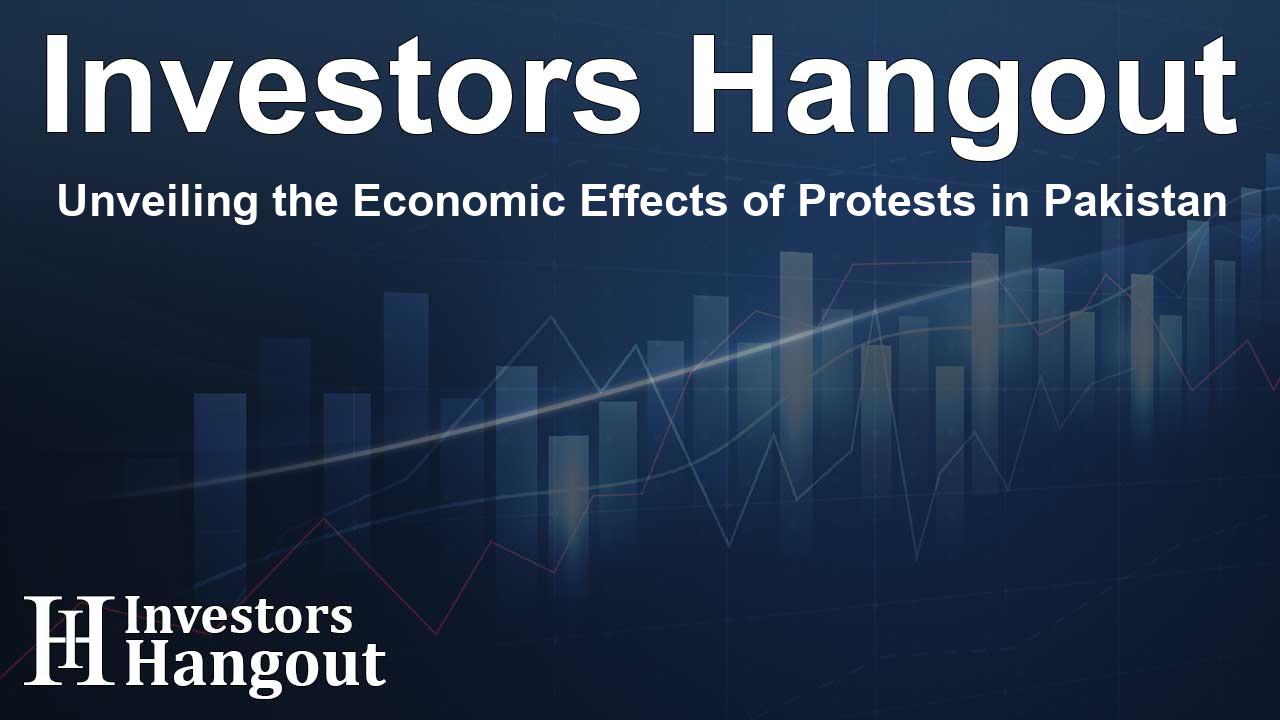Unveiling the Economic Effects of Protests in Pakistan

The Economic Impact of Protests in Pakistan
The Beltway Grid Policy Center has recently published a comprehensive research paper titled "Democracy Under Siege: Economic Fallout and Diplomatic Implications of Protests in Pakistan." This insightful study explores the ramifications of the protests that occurred in November 2024, which were led by the Pakistan Tehreek-e-Insaf (PTI) party, headed by the former Prime Minister Imran Khan.
Understanding the Protests
The protests, which were framed as a movement for democracy, brought about considerable economic challenges and governance difficulties in the region. As citizens rallied in the streets, their demands reflected a desire for political change, but the consequences of these demonstrations extended far beyond their initial intentions.
Economic Fallout and Losses
The research revealed staggering economic losses resulting from the unrest, with estimates indicating a daily loss of approximately Rs. 190 billion. Over time, this accumulates to a staggering loss of over Rs. 3 trillion, affecting critical sectors such as retail, hospitality, and logistics, where revenues dipped by more than 50% in the areas most impacted by the protests.
Governance Disruption
Beyond financial losses, the protests led to a notable paralysis in governance. Legislative and administrative operations in Islamabad faced significant disruptions, resulting in delays for crucial policymaking efforts, including those linked to agreements with the International Monetary Fund (IMF).
Impacts on International Relations
The ongoing protests also affected Pakistan's diplomatic relations. Notably, delegations from influential countries, including China and Belarus, reduced their visits to Pakistan, which raised alarms regarding the nation’s reliability as a strategic partner on the global stage.
Security Concerns and Social Unrest
The violence witnessed during these protests poses severe risks to national security. Clashes between law enforcement and demonstrators resulted in fatalities and injuries, escalating the atmosphere of instability. Additionally, widespread property damage further complicated the security landscape, creating an urgent need for effective management and intervention.
Disinformation and Societal Division
In the context of modern protests, social media platforms emerged as double-edged swords. On one hand, they facilitated the organization of fervent demonstrations, while on the other hand, they became vehicles for disinformation, with manipulated images and exaggerated casualty figures leading to increased societal divides.
Legal and Social Ramifications
The behavior of the protesters raised critical legal questions, especially as PTI supporters breached designated protest sites, leading to a ransacking of sensitive areas. This behavior creates a troubling precedent regarding the extent of democratic rights to protest while highlighting the need for careful navigation of such rights within the framework of lawful governance.
Reflections from Dr. Caldwell
Dr. Alexandra Caldwell, the author of the study, offers keen insights, drawing parallels between these events in Pakistan and historical incidents such as the January 6th Capitol Hill events in the United States. She emphasizes the transformative potential of political unrest, noting how such occurrences can severely disrupt economic connections, diplomatic relations, and governance systems. Her conclusions call for vital protections against misuse of democratic rights, particularly the often-abused right to protest.
About the Author
Dr. Alexandra Caldwell is renowned for her expertise in political science, with a focus on governance, economic stability, and global security. Her applied research equips policymakers and leaders with the insight required to navigate complex political climates.
Beltway Grid Policy Center's Mission
The Beltway Grid Policy Center is dedicated to conducting rigorous research and analysis aimed at providing actionable insights for policymakers, academic circles, and global leaders. By addressing significant issues such as the economic ramifications of civil unrest, the Center seeks to influence positive policy outcomes and enhance understanding of global political dynamics.
Frequently Asked Questions
What are the main findings of the research on protests in Pakistan?
The research highlights substantial economic damage, governance paralysis, and the deterioration of international relations, with daily losses estimated at Rs. 190 billion.
How did the protests affect Pakistan's economy?
Protests led to a cumulative economic loss exceeding Rs. 3 trillion, affecting key sectors like retail and logistics, which saw revenue declines over 50%.
What role did social media play during the protests?
Social media facilitated organization but also contributed to disinformation, exacerbating social divides and misperceptions of the unrest.
What legal issues arose from the protests?
The protests raised legal questions over the right to protest, especially given instances of breaches of designated areas and destruction of property.
Who authored the study on Pakistan's protests?
The study was authored by Dr. Alexandra Caldwell, an expert in political science and governance.
About Investors Hangout
Investors Hangout is a leading online stock forum for financial discussion and learning, offering a wide range of free tools and resources. It draws in traders of all levels, who exchange market knowledge, investigate trading tactics, and keep an eye on industry developments in real time. Featuring financial articles, stock message boards, quotes, charts, company profiles, and live news updates. Through cooperative learning and a wealth of informational resources, it helps users from novices creating their first portfolios to experts honing their techniques. Join Investors Hangout today: https://investorshangout.com/
Disclaimer: The content of this article is solely for general informational purposes only; it does not represent legal, financial, or investment advice. Investors Hangout does not offer financial advice; the author is not a licensed financial advisor. Consult a qualified advisor before making any financial or investment decisions based on this article. The author's interpretation of publicly available data shapes the opinions presented here; as a result, they should not be taken as advice to purchase, sell, or hold any securities mentioned or any other investments. The author does not guarantee the accuracy, completeness, or timeliness of any material, providing it "as is." Information and market conditions may change; past performance is not indicative of future outcomes. If any of the material offered here is inaccurate, please contact us for corrections.